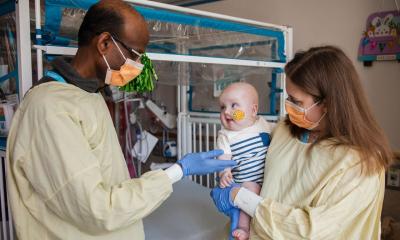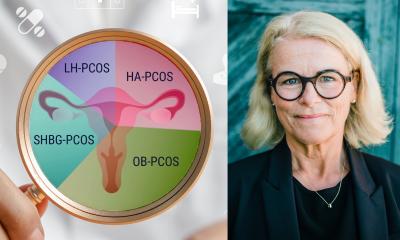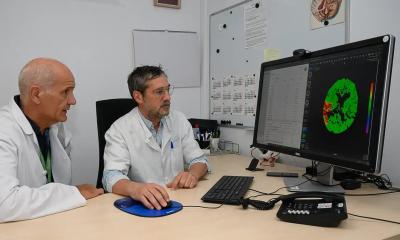Personalised cancer care
Jane MacDougall reports on a novel international symposium that aims to accelerate the transfer of research into clinical practice
For many years we have heard about personalised cancer treatments, understood each cancer patient is different and that 'one size fits all' treatments are not appropriate. We have been told that early diagnosis is the key to successful treatment and that no two patients have the same genetic or biological profile.
We know that histologically similar tumours will react differently depending on the molecular make-up of the host. Believing that personalised treatment tailored to the patient’s unique make-up is the future for oncology, researchers worldwide have spent over a decade, and many millions of euros, to discover many interesting features of human biology, numerous biomarkers and new techniques for cataloguing, collecting and calculating outcomes, but just how much of this research has actually resulted in a new diagnostic test let alone a real personalised cancer treatment? How many oncologists offer a personalised service?
According to Doctor Vladimir Lazar, at the Gustave Roussy Institute in Paris, the answer is not enough to meet clinicians and patients’ expectations ‘despite all the knowledge and insights we have gained from research there is only limited progress at the bedside.’
. Overall, 90% of cancer patients are treated as they were in the past with a standard protocol even if we intrinsically know, what works for one patient is not necessarily best for another’ he told European Hospital. So what can be done to address this? How can the amazing advances made in research be harnessed to make tools of practical use for the doctor and of benefit to the patient? Well it is possible and it will take time, but it has to be done otherwise the time, effort and hope that has been invested in cancer research will have been wasted.
As a possible solution to this conundrum, this July the first ASCO endorsed worldwide innovative networking (WIN) symposium* took place in Paris. Organised by Professor Lazar and colleagues, this novel international meeting aimed to bring together the major oncology researchers and concentrate efforts. During the single session, running from 8 am to 7 pm for two days, the symposium was very intensive but enabled the 324 participating scientists, physicians, industry, healthcare and patient advocates to follow the entire programme: from basic research, clinical trials to clinical practice.
Listening to the world-renowned key opinion leaders for each topic gave them a global overview of the advances made and at which stage each of these is at today. By identifying the bottle-necks and barriers to progress, strategies can be initiated to overcome them in a patient oriented, useful manner.
The 2nd WIN symposium is planned for 8-9 July 2010. Programme to be announced.
* Sponsored by Agilent Technologies, Applied Biosystems and GE Healthcare.
16.09.2009





